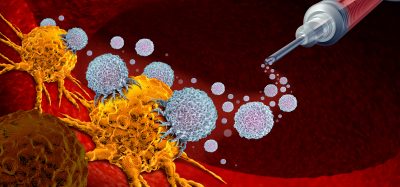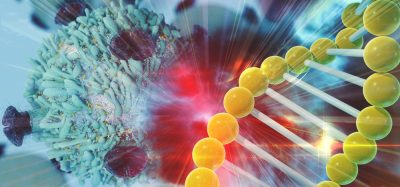Team identifies potential drug to repurpose against melanoma
Posted: 13 April 2021 | Victoria Rees (Drug Target Review) | No comments yet
Researchers say that inhibiting NLRP3 with Dapansutrile could be an effective strategy to prevent melanoma tumour growth.

Researchers have found that inhibiting an intracellular complex called NLRP3, which has been found to participate in melanoma-mediated inflammation, can reduce inflammation and the resultant tumour expansion in melanoma and other types of cancer. The study was conducted at the University of Colorado Cancer Center, US.
According to the scientists from the study, NLRP3 specifically promotes inflammation by inducing the maturation and release of interleukin-1-beta, a cytokine that causes inflammation as part of the normal immune response to infection. In cancer, however, inflammation can cause tumours to grow and spread.
“NLRP3 is a member of a larger family that is involved in sensing danger signals,” said Dr Carlo Marchetti, one of the researchers from the study. “It is a receptor that surveils the intercellular compartment of a cell, looking for danger molecules or pathogens. When NLRP3 recognises these signals, it leads to the activation of caspase-1, a protein involved in the processing and maturation of interleukin-1-beta into its biological active form, causing an intense inflammatory response. We found that in melanoma, this process is dysregulated, resulting in tumour growth.”
The oral NLRP3 inhibitor used in their study (Dapansutrile) has already shown to be effective in clinical trials to treat gout and heart disease and it is currently being tested in COVID-19 as well. The researchers are now trying to find out if this NLRP3 inhibitor can be successfully used in melanoma patients who are resistant to checkpoint inhibitors.
“Checkpoint inhibitors increase the efficacy of the immune system to kill tumours, but sometimes tumours become resistant to this treatment,” Marchetti said. “A big part of cancer research now is to find therapies that can be combined with checkpoint inhibitors to improve their efficacy.”
With the hypothesis that an NLRP3 inhibitor is one of those therapies, the researchers are now studying the drug’s effects on melanoma, as well as breast cancer and pancreatic cancer. In addition to improving the immune response, the NLRP3 inhibitor can also help reduce the side effects of checkpoint inhibitors.
The results of the study were published in PNAS.
Related topics
Drug Repurposing, Molecular Targets, Oncology, Target Validation, Therapeutics
Related organisations
University of Colorado
Related people
Dr Carlo Marchetti







